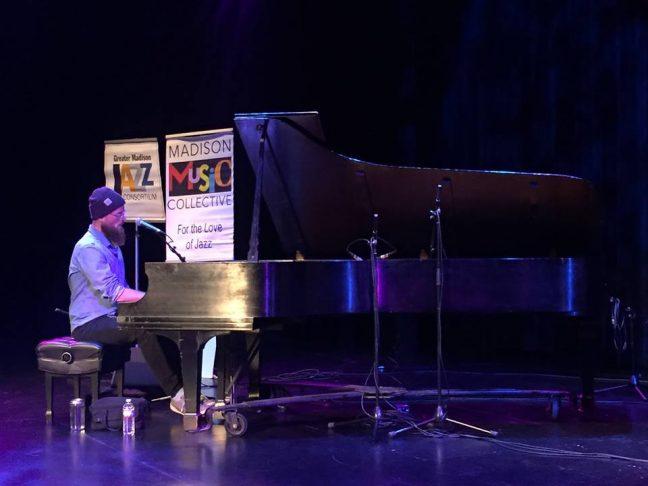Earning credit for sitting back and enjoying live music sounds too good to be true. For students at the University of Wisconsin, it isn’t.
Students enrolled in the one-credit course Music 113: Music in Performance, attend one 50-minute lecture weekly, observing lectures on chamber music and concert performances over the course of the semester.
“Clap for Credit”
Nicknamed “clap for credit” by students, the class requires notably less time and effort than others at UW.
Of the students enrolled in the class, 90.7% receive an A. Its cumulative GPA from semesters Fall 2006 to Fall 2022 was 3.93, according to UW grade distribution website Madgrades.
Students praise the course’s straightforward grading system and manageable workload. Assignments include a short quiz and 100-250 word writing assignments for each performance, UW junior Sara Christenson said.
Those who typically avoid humanities classes might find Music 113 helpful for fulfilling graduation requirements without seriously increasing their already-heavy course loads.
“I originally took Music 113 because I had heard that it was an easy and fun class, and I needed more credits to fulfill my humanities requirement,” Christenson said. “I decided to take it again for the same reason. It’s a nice break in my day to be able to go to class and not have to do anything other than just sit back and enjoy the music.”
True to its name, the applause-worthy performances of “clap for credit” have pushed students to explore other courses in the Mead Witter School of Music. Christenson decided to take Music 151: Basic Concepts of Music Theory this semester after learning about music theory in Music 113.
UW sophomore Stella Doverspike shared Christenson’s experience, claiming the course increased her interest in various styles of music. In the class, students observe a diverse array of performances by music students, the professor and occasionally other musicians.
“Music 113 has definitely expanded my knowledge of the music department here at Madison. It’s super interesting to see all of the different types of music students perform,” Doverspike said.
Music at UW
Since its music degree program was organized in 1915, Mead Witter has offered a Bachelor of Music in performance and a Bachelor of Music in education, according to the website. The school offers 11 courses, including Music 113 for non-majors, ranging in focus from music and ethnicity to theater and opera.
UW Music undergraduate advisor Todd Reck works with students taking classes throughout the department. Most students who take Music 113 are not music majors, Reck said in an email statement to the Badger Herald.
Entry-level classes like Music 113 expose students with limited training to experts in the field. The breadth and depth of courses UW offers allows students to learn from talented professors outside their chosen major, according to Reck.
While some students might consider UW’s general education requirements a nuisance, they allow students to explore the opportunities Reck mentioned. The College of Letters & Science, UW’s largest college, requires students to take courses in science, humanities, communication, mathematics and social sciences.
Reck believes Music 113 is a great option for students looking to take art-related courses, or just listen to good music.
“Students have the opportunity to experience and learn how to listen to outstanding live musical performances, learn about a wide variety of musical styles and genres, and begin to understand the social and historical contexts that music is created and performed [in],” Reck said.
Music 113 can be taken an unlimited amount of times for credit, pushing many students to take it multiple times. The exploratory nature of the class makes it a good choice for those who know that studying music is not their forte.
UW junior Tirzah Sonderman said Music 113 helped her gain a greater appreciation for different kinds of music, and she especially loved watching the opera performances. But, she doesn’t plan on taking more music classes in the future.
Making Music Accessible
Music professor and Brass Ensemble conductor Tom Curry has taught Music 113 for over five years. The class has been around for a long time and has a long history of sharing what’s going on in the Mead Witter School of Music with the broader UW student population, he said.
Curry spends the majority of his time teaching applied music and coaching ensembles composed of strictly music majors.
Curry said there’s a challenge to teaching Music 113 — one he enjoys. It requires him to make class engaging for all students, from people who are experienced with music to people who aren’t familiar with it at all.
The professor expressed his experiences with students in the class as overwhelmingly positive, particularly reading responses to weekly writing assignments.
“Every week I read almost 700 responses,” Curry said. “I read what people think about music in general, and how it fits into their lives. It’s fulfilling. It’s just heartwarming to read often times.”



